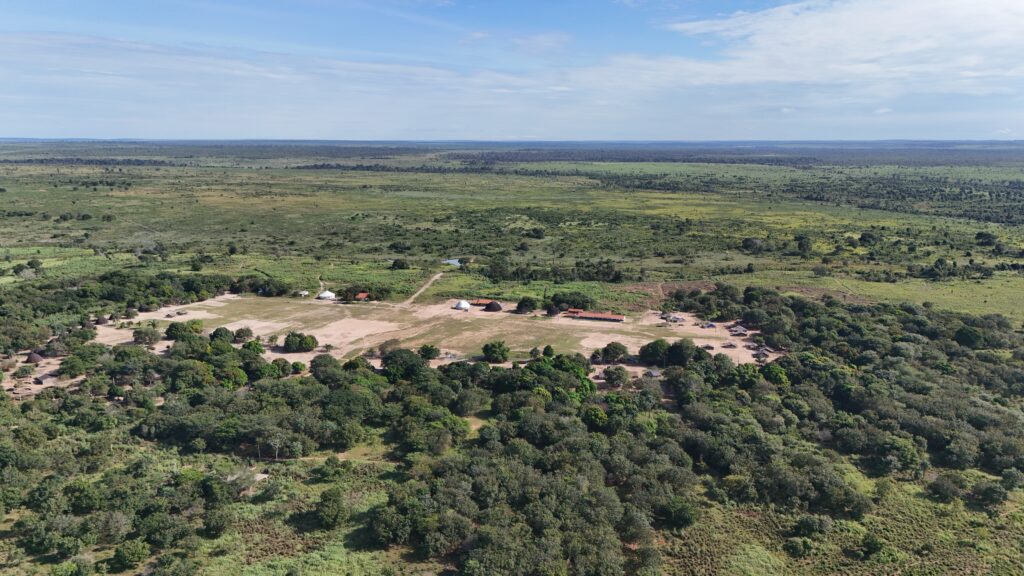OPAN warns Funai and Sesai about a worrying health situation in the Marãiwatsédé IT
Letter requests urgency in monitoring cases of child malnutrition and respiratory diseases
AI generated audio

For causes considered preventable, a baby, a pregnant woman and a young woman recently died in the Marãiwatsédé Indigenous Land, located in the northeast of Mato Grosso. In addition to deaths, the incidence of cases of child malnutrition and respiratory diseases are of concern to the population.
Operação Amazônia Nativa (OPAN), based on the report of the indigenist team present in the marãiwatsédé TI, communicated the situation in detail to the responsible bodies and requested urgency in the monitoring and resolution of this delicate picture.
In a letter sent to the Fundação Nacional dos Povos Indígenas (FUNAI) and to the Indigenous Health Secretariat (Sesai) last Friday (16/05), OPAN also drew attention to the absence of a coordinator of the Special Indigenous Health District (DSEI) Xavante and weaknesses in the infrastructure of health, especially with regard to the transport of indigenous people from the villages to the health center.
The marãiwatsédé is one of the nine territories of the Xavante people. According to the 2022 census of the Brazilian Institute of Geography and Statistics (IBGE), the population is 1160 people. In 1966, the Xavante were removed from the territory and only managed to return in 2004, with the disintrusion of squatters and farmers only taking place in 2013. In these four decades kept outside the territory, about 70% of the Native vegetation was deforested, affecting the food security of the people.
Check the full note:
Urgency in health in the Marãiwatsédé Indigenous Land (MT)
We ask Funai and Sesai to follow the current health situation of the Marãiwatsédé (MT) IT. Deaths due to malnutrition and respiratory diseases have been recorded recently. In order to prevent other deaths from happening, the effective participation of Funai and Sesai.
From the presence of the OPAN indigenist team in the Marãiwatsédé IT, we can observe some worrying aspects related to the health of the Xavante people.
Among the situations found, there are recurrent cases of child malnutrition and increasingly frequent respiratory diseases. Faced with the complexity of these situations experienced by the local population, the infrastructure leaves something to be desired, especially with regard to transport.
The two Sesai vehicles that are located in the Marãiwatsédé base hub are broken, which prevents the health team from making visits to the 21 villages of the indigenous land.
Recently, deaths were recorded in the indigenous land, being a one-year-old baby due to malnutrition, a pregnant woman with acute respiratory syndrome and a young woman for a suppurated appendix.
Considering the cases of respiratory diseases (pneumonia and tuberculosis), close follow-up is necessary for the necessary treatments and for the assessment of the degree of contagion within the territory.
Regarding child malnutrition, a deep dialogue with indigenous health agents, family groups and other professionals in the area can offer substantial information for the definition of a more accurate diagnosis.
The precise diagnosis (circumstance) is essential to take the necessary and appropriate measures to ensure the food security of the population. And, in this case, the presence of Funai, Sesai and community engagement are fundamental.
Faced with this challenging situation, the absence of a coordinator of the DSEI Xavante district makes it difficult to better organize these services.
In view of this scenario, we ask for urgency in the direct monitoring of the reported situations. Funai, Sesai and other responsible bodies, in dialogue with the community, can contribute to broader solutions.&nsp;We make available, as far as our possibilities, for the best referrals of the situation described.
with esteem,
Operation Native Amazon
Cuiabá, May 16, 2025
